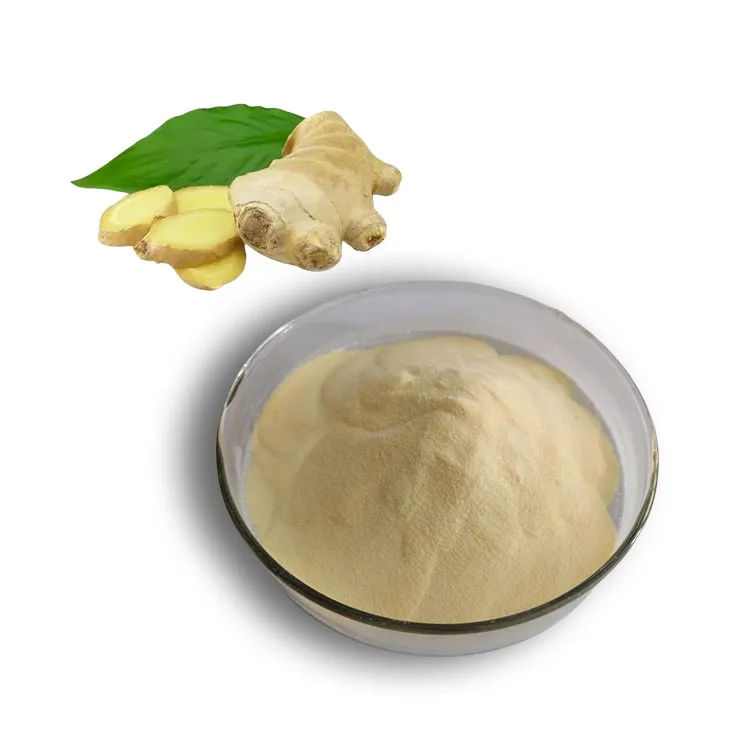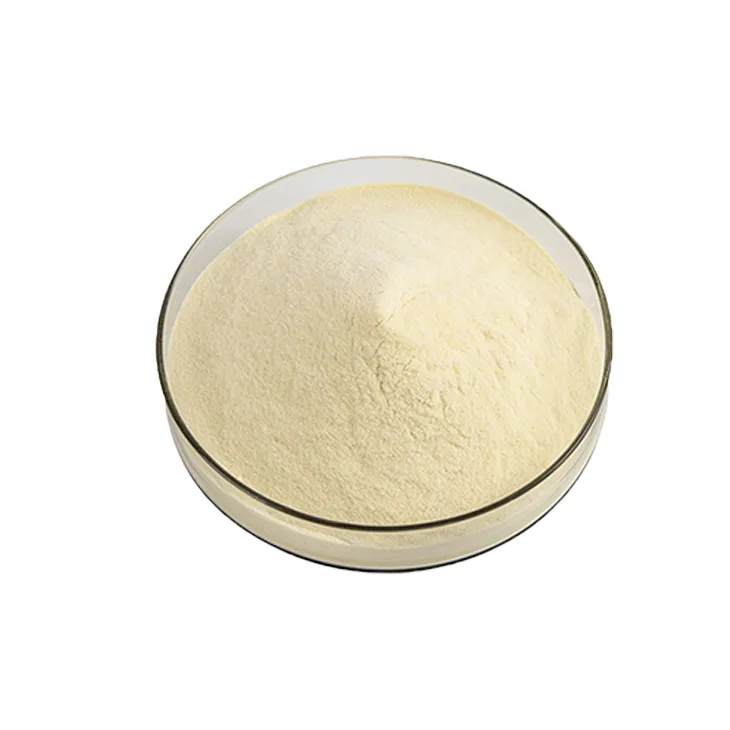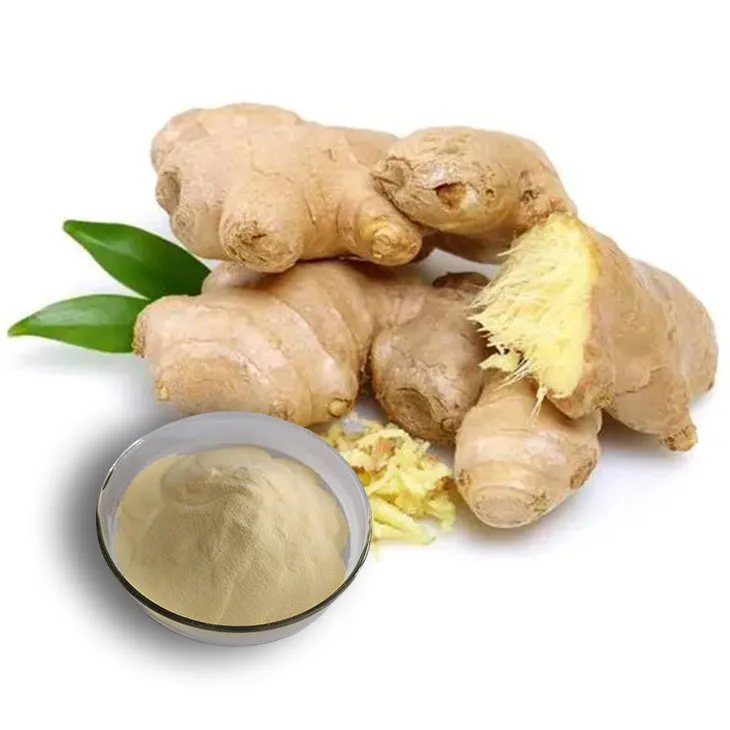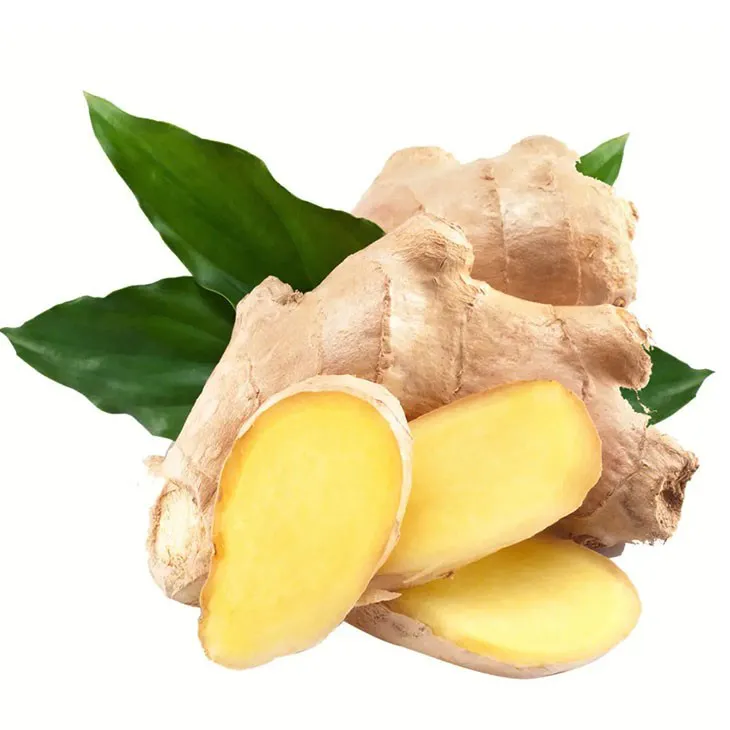- 0086-571-85302990
- sales@greenskybio.com
Is ginger extract beneficial for diabetes? Are these all safe and applicable for diabetic patients?
2024-11-12

1. Introduction
Diabetes mellitus is a chronic metabolic disorder that affects millions of people worldwide. It is characterized by high blood glucose levels due to either insufficient insulin production or ineffective insulin action. Management of diabetes typically involves lifestyle modifications, including diet and exercise, as well as pharmacological interventions. In recent years, there has been growing interest in natural products such as Ginger Extract for their potential benefits in diabetes treatment. Ginger (Zingiber officinale) has been used for centuries in traditional medicine for various ailments. This article aims to explore the possible benefits of Ginger Extract for diabetes patients, particularly in relation to glycemic control, and also discuss its safety and applicability for diabetic individuals.

2. The Potential Benefits of Ginger Extract for Diabetes
2.1. Glycemic Control
Glycemic control is a crucial aspect of diabetes management. Several studies have suggested that ginger extract may have a positive impact on blood glucose levels. Ginger contains bioactive compounds such as gingerols and shogaols, which are believed to possess antidiabetic properties.
Some experimental studies in animal models of diabetes have shown that ginger extract can improve insulin sensitivity. For example, in diabetic rats, ginger supplementation was associated with a reduction in fasting blood glucose levels and an increase in insulin - mediated glucose uptake in skeletal muscle cells. This indicates that ginger may help the body use insulin more effectively, which is essential for maintaining normal blood glucose levels.
In human studies, the results have been somewhat mixed but still promising. Some small - scale clinical trials have reported a modest decrease in fasting blood glucose and glycated hemoglobin (HbA1c) levels in diabetic patients who consumed ginger extract over a certain period. HbA1c is an important biomarker that reflects the average blood glucose levels over the past two to three months. A reduction in HbA1c suggests better long - term glycemic control.
2.2. Anti - inflammatory Effects
Chronic inflammation is closely associated with the development and progression of diabetes. Ginger has well - known anti - inflammatory properties. The bioactive compounds in ginger can inhibit the production of pro - inflammatory cytokines, such as interleukin - 6 (IL - 6) and tumor necrosis factor - alpha (TNF - α).
By reducing inflammation, ginger extract may potentially help in diabetes management. Inflammation can interfere with insulin signaling pathways and contribute to insulin resistance. Therefore, the anti - inflammatory effects of ginger may indirectly improve glycemic control and reduce the risk of diabetes - related complications.
2.3. Lipid Profile Improvement
Abnormal lipid profiles, including high levels of triglycerides, low - density lipoprotein cholesterol (LDL - C), and low levels of high - density lipoprotein cholesterol (HDL - C), are common in diabetic patients. Ginger extract has been shown to have beneficial effects on lipid metabolism.
Studies in animals and some human trials have reported that ginger can lower triglyceride and LDL - C levels while increasing HDL - C levels. A better lipid profile is associated with a reduced risk of cardiovascular diseases, which are a major complication of diabetes. Thus, ginger extract may contribute to the overall management of diabetes by improving the lipid profile.

3. Safety of Ginger Extract for Diabetic Patients
3.1. General Safety
Ginger has a long history of use in cooking and traditional medicine, which generally suggests its safety. When consumed in normal dietary amounts, ginger is well - tolerated by most people. However, when it comes to ginger extract in the context of diabetes treatment, some considerations need to be made.
At appropriate dosages, ginger extract is generally considered safe for diabetic patients. There are no reports of major adverse effects directly related to the use of ginger extract for glycemic control. However, some people may experience mild side effects such as gastrointestinal discomfort, including nausea, bloating, or heartburn. These side effects are usually transient and can be minimized by adjusting the dosage or taking ginger extract with food.
3.2. Drug Interactions
Diabetic patients often take medications to manage their blood glucose levels. It is important to consider potential drug interactions when using ginger extract. Ginger may interact with certain medications, particularly blood - thinning drugs such as warfarin.
Ginger has anti - platelet and anticoagulant properties, which can potentiate the effects of warfarin and increase the risk of bleeding. Therefore, diabetic patients who are taking warfarin or other blood - thinning medications should consult their healthcare provider before using ginger extract. Additionally, ginger may also interact with some hypoglycemic drugs, although the evidence for this is less clear. It is crucial that patients inform their doctors about any supplements they are taking, including ginger extract, to avoid potential adverse drug interactions.

4. Applicability of Ginger Extract for Diabetic Patients
4.1. Dietary Incorporation
One of the simplest ways for diabetic patients to benefit from ginger is through dietary incorporation. Ginger can be added to various foods and beverages. For example, it can be used in cooking to add flavor to dishes such as stir - fries, soups, or curries. It can also be brewed into tea, which is a popular way of consuming ginger.
When using ginger in cooking or making tea, it is important to note that the amount of ginger used may vary depending on personal taste and tolerance. Diabetic patients should start with small amounts and gradually increase the quantity if they tolerate it well. This allows them to monitor their blood glucose levels and any potential side effects.
4.2. Supplement Use
In addition to dietary sources, ginger extract is also available in supplement form. Ginger supplements are marketed in various forms, including capsules, tablets, and tinctures. For diabetic patients who may not be able to consume enough ginger through their diet or who prefer a more concentrated form, ginger supplements can be an option.
However, when choosing a ginger supplement, patients should be cautious. They should look for high - quality products from reliable manufacturers. The dosage instructions should be followed carefully, and it is advisable to start with a low dose and gradually increase if necessary. As mentioned earlier, patients should also be aware of potential drug interactions when using ginger supplements.

5. Conclusion
In conclusion, ginger extract shows potential benefits for diabetes patients in terms of glycemic control, anti - inflammatory effects, and lipid profile improvement. It is generally safe when consumed in appropriate amounts, although some mild side effects and potential drug interactions need to be considered. Diabetic patients can incorporate ginger into their diet through cooking or brewing tea, or they can consider using ginger supplements under the guidance of a healthcare provider.
However, more research is needed to fully understand the mechanisms of action of ginger in diabetes and to establish optimal dosages and long - term safety. With further investigation, ginger extract may become a valuable adjunct in the management of diabetes, offering a natural and potentially effective option for diabetic individuals.
FAQ:
Q1: What are the potential benefits of ginger extract for diabetes?
Ginger extract may have several potential benefits for diabetes. One of the main advantages is its possible role in glycemic control. It may help in reducing blood sugar levels by improving insulin sensitivity. Ginger also has anti - inflammatory properties, which can be beneficial as diabetes is often associated with chronic inflammation. Additionally, it may have antioxidant effects that can protect cells from damage caused by high blood sugar levels.
Q2: How does ginger extract affect blood sugar levels?
Ginger extract can affect blood sugar levels in multiple ways. It may stimulate the production of insulin or enhance the effectiveness of existing insulin in the body. This helps cells to take up glucose more efficiently from the bloodstream, thus reducing blood sugar levels. Some studies suggest that ginger can also inhibit certain enzymes involved in carbohydrate digestion, which can slow down the release of glucose into the blood after a meal.
Q3: Is ginger extract safe for all diabetic patients?
While ginger extract is generally considered safe for most diabetic patients, it may not be suitable for everyone. Some individuals may be allergic to ginger, and in such cases, it can cause allergic reactions. Also, if a diabetic patient is taking certain medications, ginger extract may interact with them. For example, it can interact with blood - thinning medications, increasing the risk of bleeding. Therefore, it is important for diabetic patients to consult their healthcare provider before starting to take ginger extract.
Q4: How can diabetic patients incorporate ginger extract into their diet?
Diabetic patients can incorporate ginger extract into their diet in various ways. They can add fresh ginger to their meals, such as in stir - fries, soups, or smoothies. Ginger tea made from fresh or dried ginger is also a popular option. There are also ginger extract supplements available in the market, but it is crucial to choose a reliable product and follow the recommended dosage. However, it should be noted that supplements should be used under medical supervision.
Q5: Are there any side effects of ginger extract for diabetic patients?
When consumed in normal amounts, ginger extract usually has few side effects for diabetic patients. However, excessive consumption may cause some digestive issues such as heartburn, nausea, or diarrhea. As mentioned before, it can also interact with medications, which may lead to potential side effects. So, moderation is key, and any unusual symptoms should be reported to a healthcare provider.
Related literature
- Ginger and Diabetes: A Review of the Current Evidence"
- "The Role of Ginger Extract in Glycemic Control in Diabetic Patients"
- "Beneficial Effects of Ginger on Diabetes - Associated Complications"
- ▶ Hesperidin
- ▶ Citrus Bioflavonoids
- ▶ Plant Extract
- ▶ lycopene
- ▶ Diosmin
- ▶ Grape seed extract
- ▶ Sea buckthorn Juice Powder
- ▶ Fruit Juice Powder
- ▶ Hops Extract
- ▶ Artichoke Extract
- ▶ Mushroom extract
- ▶ Astaxanthin
- ▶ Green Tea Extract
- ▶ Curcumin
- ▶ Horse Chestnut Extract
- ▶ Other Product
- ▶ Boswellia Serrata Extract
- ▶ Resveratrol
- ▶ Marigold Extract
- ▶ Grape Leaf Extract
- ▶ New Product
- ▶ Aminolevulinic acid
- ▶ Cranberry Extract
- ▶ Red Yeast Rice
- ▶ Red Wine Extract
-
Green Tea Extract
2024-11-12
-
Aminolevulinic acid
2024-11-12
-
Fenugreek Extract Powder
2024-11-12
-
Camu Camu Extract
2024-11-12
-
Beetroot Powder
2024-11-12
-
Saw Palmetto Extract
2024-11-12
-
Pine bark Extract Powder
2024-11-12
-
Horse Chestnut Extract
2024-11-12
-
Ginger Extract
2024-11-12
-
Agaricus Blazei Extract
2024-11-12




















